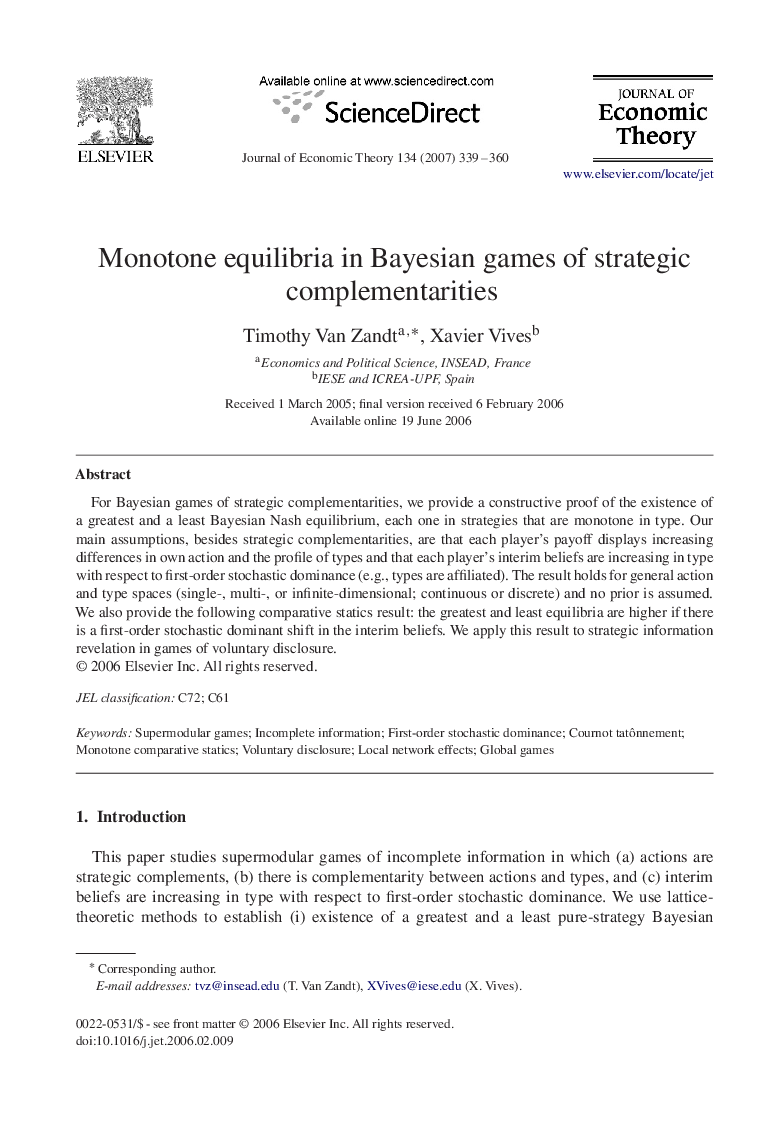| Article ID | Journal | Published Year | Pages | File Type |
|---|---|---|---|---|
| 957744 | Journal of Economic Theory | 2007 | 22 Pages |
Abstract
For Bayesian games of strategic complementarities, we provide a constructive proof of the existence of a greatest and a least Bayesian Nash equilibrium, each one in strategies that are monotone in type. Our main assumptions, besides strategic complementarities, are that each player's payoff displays increasing differences in own action and the profile of types and that each player's interim beliefs are increasing in type with respect to first-order stochastic dominance (e.g., types are affiliated). The result holds for general action and type spaces (single-, multi-, or infinite-dimensional; continuous or discrete) and no prior is assumed. We also provide the following comparative statics result: the greatest and least equilibria are higher if there is a first-order stochastic dominant shift in the interim beliefs. We apply this result to strategic information revelation in games of voluntary disclosure.
Keywords
Related Topics
Social Sciences and Humanities
Economics, Econometrics and Finance
Economics and Econometrics
Authors
Timothy Van Zandt, Xavier Vives,
